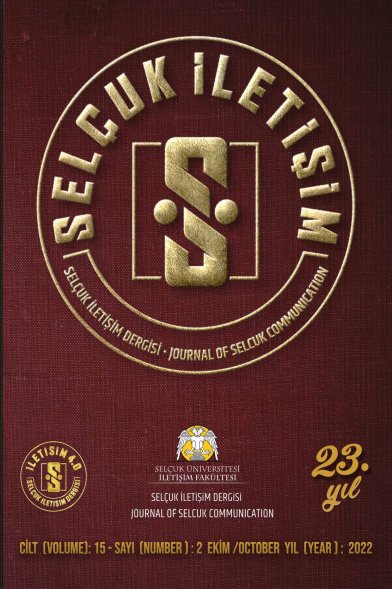Bilgisayar, internet ve video oyunları arasında çocuklar
Bilgisayar, internet ve video oyunları ile hızla gelişen bir ekonomi sektörünün yarattığı sanal dünyanın çocuklar üzerindeki etkilerine ait tartışmalar giderek ülkemizde de yoğunlaşıyor. Aileler, psikologlar, sosyologlar, eğitimciler, iletişimciler, eğitim teknologları ve akademisyenler tartışmanın taraflarını oluşturmaktadır. Tartışmacıların bir grubu çocuklar üzerinde olumsuz etkileri savunurken, bir grubu faydaları üzerinde duruyor. Eğitimciler ve eğitim teknologları ise bu iletişim ve etkileşim dünyasının yaratıcıları ile işbirliği yapılarak hazırlanacak programların okullarda kullanılmasının çocuklara sağlayacağı kazanımlara işaret ediyorlar. Öyle görülüyor ki, tartışmalar bu konularda henüz teorileri oluşturmakta bir sonuca ulaşmış değil. Bilgisayar, internet ve video oyunlarının çocukların küçük yaşlarda teknoloji ile etkileşime girmesinin zararlarına işaret eden görüşlere karşın, çocukların bu dijital teknolojiye ilgi duyması ve onların bu teknolojiyi kendilerine faydalı haliyle kullanmaları da önemlidir. Ailelerin gerek internet kullanımında, gerek video oyunlarının seçiminde, kontrolü elden bırakmamaları gerekmektedir.
Our children amidst computer,internet and video games
Discussions on the effects of the virtual world on children, that is created by the economy sector which is developing rapidly with computer, Internet and video games are increasingly intensifying also in our country. Families, psychologists, sociologists, educators, communicationists, educational technologists and academicians are sides of this discussion. Wheras one group of disputers asserts its negative effects on children, another group emphasizes its advantages. As to educators and educational technologists, they point at the acquisitions of children from the programs to be prepared in cooperation with the creators of communication and interaction and to be used in schools. It appears that discussions have not reached a conclusion on theorizing on these subjects yet. In spite of views which point at the hazards of childrens’ interaction with computer, internet and video games technology at an early age, it is also important that children are interested in this digital technology and use it in a way that will be of benefit for them. Parents should be attentive not to throw caution to the wind either in internet use or in video games selection.
___
- Akyay S, İnternet Kafelerin Çocuklar Üzerinde Etkileri, www.caginpolisi.com.tr/32/5-6-7.htm, erişim tarihi: 24.03.2010
- Anderson C A & Bushman B J (2001).Effects of Violent, Games on Aggressive Behaviour. A Metaanalytical Review of The Scientific Literature, Psychological Science, 12, 353-359.
- Bowman R F (1982) A Pac-Man Theory of Motivation. Tactical Implications for Classroom Instruction,Educational Technology 22 (9), 15-16.
- Bracey G W (1992) The Bright Future of Integrated Learning Systems, Educational Technology, 32 (9), 60-62.
- Brown A L (1992) Design experiments: Theoretical and Methodological Challenges in Creating Complex Interventions in Classroom Settings, The Journal of The Learning Sciences, 2 (2) 141-178.
- Cordova D I & Lepper M R (1996) Instrinsic Motivation and the Process of Learning: Beneficial Effects of Contextualization, Personalization, and Choice. Journal of Educational Psychology, 88 (4), 15-30
- Duygulu S,Bilgisayar Oyunlarının Olumsuz Etkileri, http://www.tavsiyeediyorum.com/makale_ 6453.htm, erişim tarihi: 18.03.2011.
- Gürcan A, http://www.radikal.com.tr, erişim tarihi: 24.03.2010.
- http://en.wikipedia.org/wiki/video_game_beha vioral_effects, erişim tarihi: 21.05.2010.
- http://okulweb.meb.gov.tr/35/02959733/dokum an%20arsivi%C4%BONTERNET%20OYUN %20VE%20%C3%87OCUK%20savas.doc,erişim tarihi: 18.03.2011.
- http://tiport.com/cocuklar-en-cok-hangi-oyunla ri-tercih-ediyor-1187.html, erişim tarihi: 24.03. 2010.
- Kartha D, Effects of Video Games on Children, www.buzzle.com/articles/effectsof-videogames -on-children.html, erişim tarihi: 28.06.2010.
- Kurt Squire, website.education.wisc.edu /kdsq uire /research.html,06:44 23 GMT, erişim tarihi: 02.07.2010.
- Malone T W (1981) Tword a Theory of intrinsically motivating instruction. Cognitive Science 5 (4), 333-369.
- Odabaşı H F, Kabakçı I ve Çoklar A N (2007) İnternet Çocuk ve Aile, Nobel Yayın Dağıtım, Ankara.
- Öcel N (2002) İletişim ve Çocuk, İstanbul Üniversitesi İletişim Fakültesi Yayını, No: 15, İstanbul.
- Özden M ve Yılmaz F (2008) 4-5. Sınıflar İlköğretim Programının İnternet Kullanımına Etkisinin Aile Görüşlerine Göre Değerlendirilmesi, VIII. International Educational Technology Conference, 6-9 May 2008, Ankara, s. 695-698,
- Özer Ö ve Birsen H (2010) İnternet Aracılığıyla Şiddet İçerikli Oyun Oynamayla İlgili Kullanım ve Doyumlar Kuramı Çerçevesinde Yapılan Araştırma, Ömer Özer (ed), Medyada Şiddet Kültürü, Literatürk Yayınları, İstanbul, s. 347-383
- Provenzo E F (1992) What do Video Games Teach ? The Education Digest 58 (4).
- Schie Van E ve Wiegman O (1997) Children and Videogames: Leisure Activities, Aggression, Social Integration, and School Performance, Journal of Applied Social Psycology 27 (13), 1175-1194.
- www.guvenliweb.org.tr, erişim tarihi: 24.03. 2010.
- www.guvenliweb.org.tr/content/bilgisayaroyunlar, Kaynak: NTV 12-04-2009 13.07 Makaleler, erişim tarihi: 24.03.2010.
- www.on5yirmi5.com/genel/content-aspx?c=11 481, erişim tarihi: 24.03.2010.
- www.radikal.com.tr/Radikal.aspx?aType=Radi kalDetayV3&ArticleID=982381&Date=22.03. 2010&CategoryID=117, erişim tarihi: 17.03. 2011.
- www.zaman.com.tr/haber.do?haberno=916205, erişim tarihi: 24.03.2010.
- Yayın Aralığı: Yılda 2 Sayı
- Başlangıç: 1999
- Yayıncı: Selçuk Üniversitesi İletişim Fakültesi
Sayıdaki Diğer Makaleler
KAMU YÖNETİMİNDE HALKLA İLİŞKİLER VE SOSYAL MEDYA
TAŞRADA GÜNDELİK HAYATIN İDEOLOJİSİNİN VAVİEN VE SÜT FİLMLERİ PERSPEKTİFİNDEN OKUNMASI
Seda OLGUNDENİZ, Ayşe ÇATALCALI
Sağlık haberlerinde “Mucize tedavi”ler
Asuman KAYA, Pelin Öğüt, Erkan YÜKSEL
Göker GÜLAY, Ebru GÖKALİLER, Ayda AYBAR SABUNCUOĞLU
Bilgisayar, internet ve video oyunları arasında çocuklar
DÜNYAYA AMERİKA'NIN GÖZÜYLE BAKMAK: AMERİKAN BASININDA ULUSLARARASI HABERLER 2007-2009
Yavaş Güzeldir: “YavaşYemek”ten “Yavaş Medya”ya hızlı tüketime dair bir çözüm önerisi
